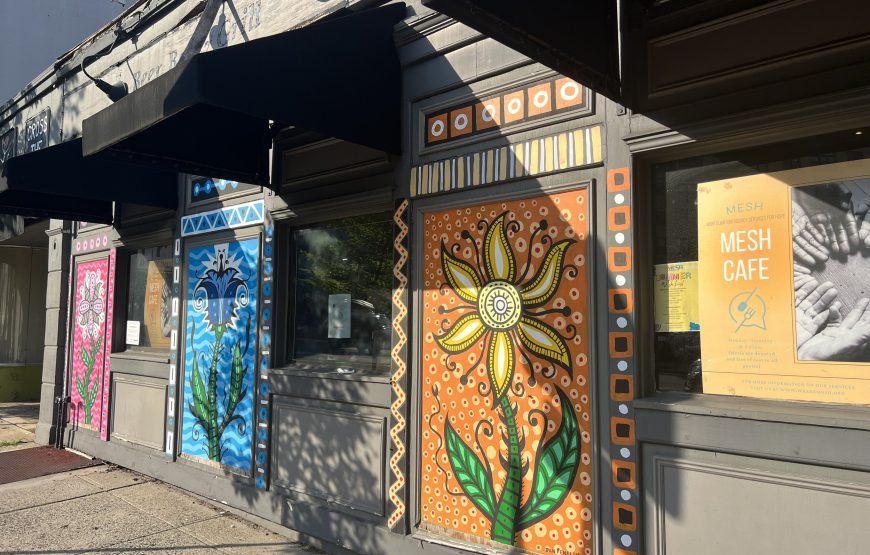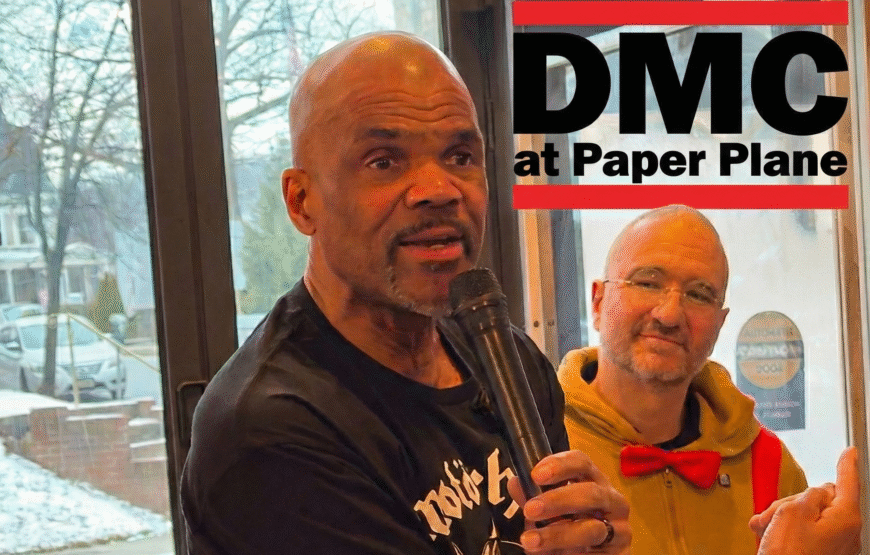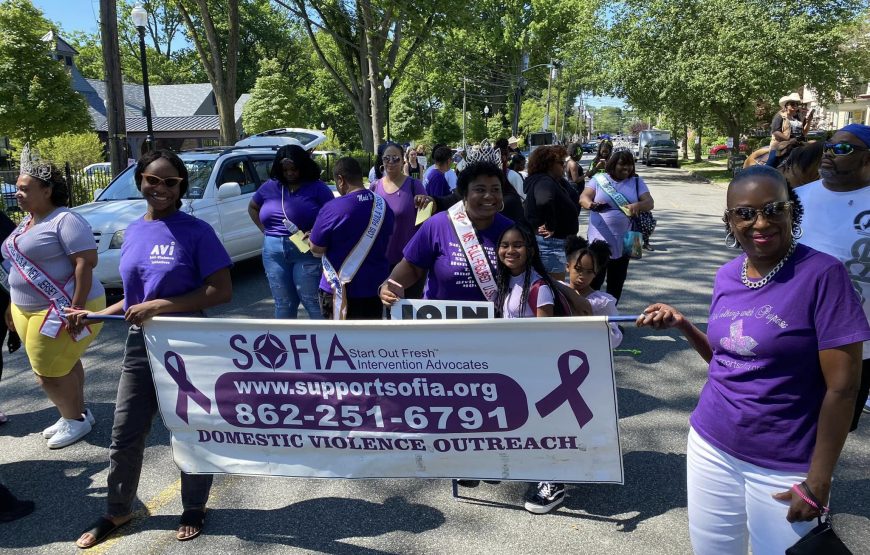Photo Credit: MESH
Montclair is facing a growing unhoused population that’s putting pressure on residents, businesses, and local leaders alike. At the heart of the local response is MESH—Montclair Emergency Services for Hope—a nonprofit that has evolved from a rotating winter shelter into a full-time support center offering meals, clothing, job support, and community connection.
Founded in 2005, MESH now operates out of a permanent space on Bloomfield Avenue, donated by BDP Holdings. Last winter, the organization provided shelter for 110 nights—well beyond its initial projections—and helped 27 individuals secure employment.
“There are a lot of hardworking families throughout Essex County that are just barely covering their rent,” said Joe Granger, MESH’s executive director. “As rents escalate, that’s a bigger problem. The number of unhoused and food-insecure people is increasing—it’s a bigger and bigger job.”
Despite increases in grants and private donations, Granger acknowledged the organization is struggling to keep up. “We had a record year in terms of clothing and toiletry items given away. We didn’t raise enough money. We didn’t provide enough services.”
Many guests arrive with complex needs. “All of them have a touch of what I call manic behavior,” Granger said. “Some traits are from the lifestyle they have to live. For those with more serious issues—mental health or addiction—we have to figure out how to really help them.”
Letrice, who lost her job in a hospital lab last winter, now visits MESH for job searches, meals, and support. “It’s about a sense of community,” she said. “It’s like iron sharpens iron.”
As MESH’s presence has grown, so have concerns from nearby businesses about safety and public disturbances. “It seems we are trying to do something against the homeless, and that’s not the case at all,” said Eddie Peralta, owner of Powerhouse Tattoo. “We’re just trying to make a living, and if this is affecting us, then we’re going to say something.”
“It’s about a sense of community. It’s like iron sharpens iron.”
Letrice, mesh guest
“There was a time we had to call an ambulance for someone who was beaten,” he added. “That park bench has become headquarters for all kinds of vagrancy.”
Matt Jenkins of Montclair Smoke and Mirrors said this year has been the most difficult in his eight years on Bloomfield Avenue. “They follow the customers inside the store asking for change,” he said. “I had never witnessed that before.”
Town officials say they’re trying to strike a balance. “We have to take care of our small business communities too,” said Deputy Mayor Susan Shin Andersen. “At the same time, we need to look at things from all perspectives. We have a limited budget, so we have to figure out what we can do.”
Recent efforts include appointing a housing liaison, funded by grants, to coordinate long-term solutions like job training, mental health support, and transitional housing. “We decided we wanted to go beyond short-term solutions,” said Mayor Renée Baskerville. “We wanted to try to create more housing for unsheltered individuals, and we were very close to doing that.” A plan to purchase a residential property for supportive housing fell through after neighborhood opposition.
Montclair police say enforcement can only go so far. “There’s nothing to charge a person with for being homeless or emotionally or mentally challenged,” said Lieutenant Tyrone Williams Jr. “We have to take a holistic approach as a community. Police can’t just show up and decide someone isn’t acting right—we have to have a victim and a crime.”
Williams is working with a judge to mandate treatment instead of jail time for a repeat offender with substance abuse issues. “We’re working to make rehab a condition of his sentence,” he said.
Granger supports that strategy. “If we can have a court order in place that says, ‘You can either go to jail for six months or we’ll suspend that sentence if you go to detox and in-resident rehab,’ that puts them in the best possible position to get started on a good track.”
As town officials examine next steps, they’re also debating how to manage regional demand. “If we’re seeing as many people coming from Bloomfield and West Orange, and they’re not offering assistance… that’s a huge problem for Montclair,” said Baskerville. “We have to ask: do we want to be regional in Montclair, or focus on providing the best programs for our Montclair residents?”
Despite the complexity, MESH continues to provide stability for those in crisis. Tammy, who fled domestic violence, said the center was a lifeline. “It’s nice to know I can come somewhere and get a change of clothes, wash up, or have a warm meal,” she said. “A little help makes it easier to get through hard times.”
Granger said those stories are what keep the organization going. “Those great moments when you see people break through and get back on the track they were supposed to be on far outweigh the difficulty and the frustration,” he said. “I’m grateful for the opportunity.”
Latest Posts:
- SlushieGate Comes to Montclair Schools
- The People’s Lawyer Reflects: Matt Platkin on Power, Accountability, and What Comes After Office
- Montclair Honors Dr. Martin Luther King Jr. With a Weekend of Service, Worship, and Community
- Not a Verona Resident? You Can Still Join the Verona Pool in 2026
- Montclair’s Budget Reality Check: Inside the School District’s Latest Town Hall



